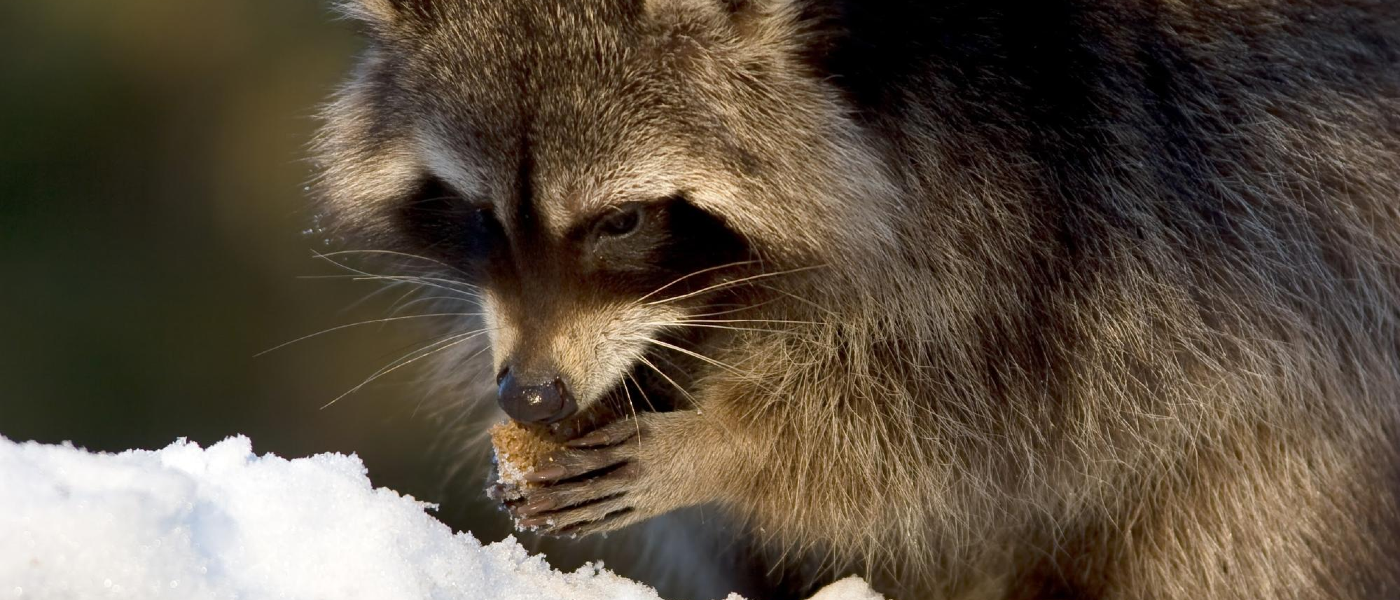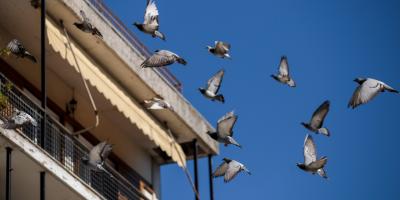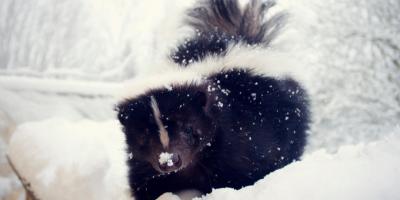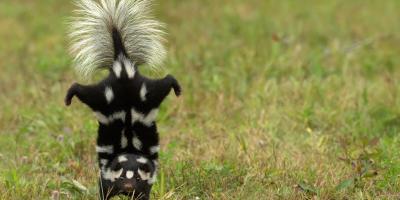Four Wildlife Pests that Stick Around in the Winter

Some folks can’t take the cold and head south to avoid the long New England winter, while others prefer to stick it out and enjoy the challenging beauty of the season. Meanwhile, some of the region’s wilder residents have no choice but to hunker down and find shelter.
Bats, mice, skunks and raccoons tough out the season the best way they know how, which often (unfortunately) means becoming a nuisance to humans and an unwanted holiday guest in your home. Before any of these shelter-seeking species put a damper on your holiday season, here’s what you need to know to stay pest-free this winter.
Don’t Let Bats Drive You Batty
Bats get a bad rap—especially around Halloween, when the freaky flying mammals are portrayed as blood-sucking beasts. Nothing could be further from the truth, as most bats are typically docile creatures, whose greatest threat to human health is from the presence of their droppings, or guano when they get too comfortable on your turf and make your attic into their new roosting spot.
Most bats hibernate, so if you encounter them in your residence in the winter, chances are they’ll be in a deep sleep. Many species of bats are endangered, so only a pest control professional who knows how to safely and humanely exclude them should address a bat problem in your home.
Get Mice Moving
People’s opinions are pretty divided on mice—some think they’re cute; others, well, not so much. Whichever camp you fall into, the unfortunate fact is that mice carry diseases like hantavirus, Lyme disease and leptospirosis, so they’re not exactly the kind of guests you’ll want to stay at your house this winter.
If you’re noticing mice around your property this season, there’s a few things you can do. First, catch up on your landscaping chores—mice love to warm up in dead leaves, plants and fallen branches. Next, check your house for holes, cracks and openings; and make sure all doors, windows, chimneys and vents are properly sealed. Finally, if the problem persists, you’ll want to contact a licensed pest control professional to eradicate the problem pests for good.
Skunk Problems Really Stink
Female skunks spend most of the winter bunkered in their dens away from the cold, but males are known to wander in search of mates. They’re especially active in February and March, making it peak breeding season for them. The good news is that skunks only spray when threatened, so if you see any roaming around your property, just leave them alone in their search for love.
If the skunk situation becomes problematic -- they, too, post a threat to human health and are considered a primary carrier of rabies. In this case, you may want to consider deterring them or having them removed from your property.
Beware the Masked Bandits: Raccoons
Raccoons may look cute with their black masks and button noses, but they can be vicious when confronted, so take caution. Raccoons spend the winter in hollow trees, burrows, abandoned buildings and rock crevices, and they stay holed up when the weather turns frightful. But as soon as the temperatures warm and the skies clear up, raccoons are out on the prowl, scavenging for food. If raccoons -- another common rabies carrier -- invade your space, just remember that only a pest control professional is equipped to handle them, so it’s better not to get too hands-on with controlling them yourself. Instead, do what you can to make your property less attractive to them by reducing the available food sources for them. If they continue to be nuisance pests or have made homes for themselves in your attic, you’ll want to call in a professional to remove them.
Need help keeping winter pests off your turf? Visit our website for a free wildlife control quote.



